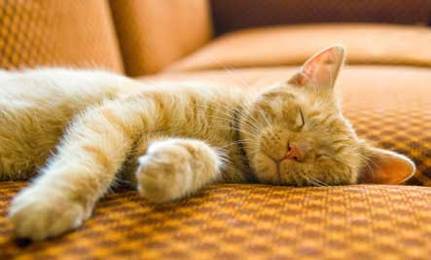For starters, take a look at BBC’s humorous jab at one feline’s love for his female…
What is it about cats and women? Why are there “cat ladies” but not “hamster ladies”? Why do so many women seem to gravitate towards cats? The crazy-cat-lady stereotype aside (by the way, every segment of the population has its extremes, cat-loving women should not have to take a bad rap for a few odd birds) we know many more women than men who have a special bond with their cats. So, what’s the rub?
A new study supports the idea that a special relationship exists between women and cats. To be published in the journal Behavioural Processes, the study explains how researchers observed the interactions between 41 cats and their human families; the scientists noted all behaviours of both cats and humans, and also assessed their personalities as well as their influence over one another.
While many people might consider cats to be aloof, self-serving prima donnas, the study concludes otherwise; beyond food-seeking behaviour of the cats, they found that cats forge true attachment to their owners.
Here is a summary of what they found.
The researchers witnessed a mutual social interaction in which both cats and people signaled to each other when they wanted to give or receive affection.
Cats keep track of how their needs are being met. They were more likely to respond to owners’ needs, if their parents had previously responded to theirs.
Cats seem to remember kindness and return favours later. If owners grant their feline’s wishes to interact, then the cat will often reply to the parent’s wishes later.
Cats have an edge in this negotiation, since parents are usually already motivated to establish social contact.
While men got along with their cats, researchers saw more interactions between women and their animals, finding that cats were more likely to approach women than men and to do things like jump on their laps to initiate contact.
Adapted from an article by Melissa Breyer




